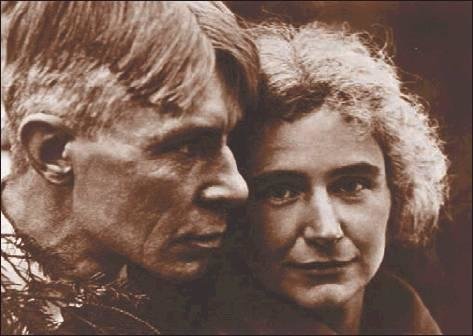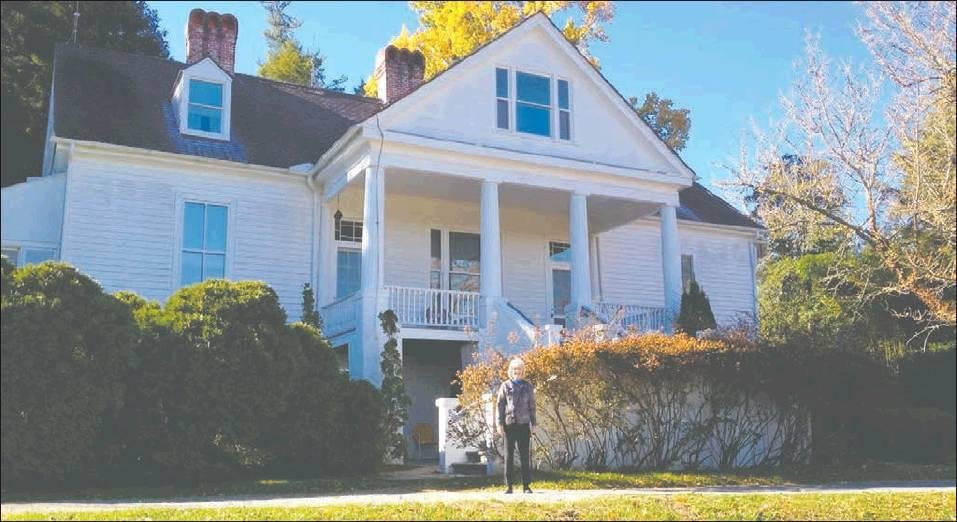Unwelcome guests at the great poet’s home
Travel along with Chronicle Editor Emeritus Jerry Bel-lune as he begins a series on historic homes and places in North and South Carolina.
Early one Sunday evening, 3 Furman University …
This item is available in full to subscribers.
Subscribe to continue reading. Already a subscriber? Sign in
Get 50% of all subscriptions for a limited time. Subscribe today.
Please log in to continueNeed an account?
|
Unwelcome guests at the great poet’s home
Travel along with Chronicle Editor Emeritus Jerry Bel-lune as he begins a series on historic homes and places in North and South Carolina.
Early one Sunday evening, 3 Furman University under-graduates put their heads together. With young people, this may be considered a dangerous activity.
The 3 decided they needed to publish a series of interviews with famous authors and poets in the college literary magazine.
Who better to start with than Carl Sandburg? He was the Pulitzer Prize winning author of a 6-volume biography of Abraham Lincoln.
At the time, it was the best-selling, most widely read and influential account of the Civil War president’s life and influence.
Sandburg was a respected poet who commanded large audiences wherever he read from his work. And he lived with his family a little over an hour away in Flat Rock, a quaint mountain village.
Without any thought about their unannounced arrival and the possible reception that awaited, the 3 piled into a car and headed up the mountain to North Carolina. It began to rain along the way and the winding road was treacherous driving in the dark.
The Sandburgs lived on a farm outside Flat Rock where Lilian Sandburg, the great man’s wife, raised all manner of creatures and most of the fruit and vegetables the family ate. This freed her husband to concentrate on his writing and literary tours that brought the family an income.
Sandburg lived an unusual life from the rest of his family. When he was not on tour, he wrote most of the night while his family was asleep, nodded off around dawn and slept until lunch time. He ate lunch and dinner with his family, then went upstairs to his writing room to work until dawn.
Sandburg had been an adventurer. He rode the rails during the Great Depression, found work where he could and lived with hobos and farm workers.
He volunteered for the Spanish American War in 1898. When he returned to the US, he started at Lombard College in Galesburg, IL and worked as a fireman to earn a living wage.
Sandburg identified with common folk and worried about how the American worker was treated.
In 1908, he married Lilian Steichen and went to work as a reporter for the Chicago Daily News. He covered labor unions and the 1919 Chicago Race Riots.
The riots began because black people felt ill-treated when they returned from World War I. He and Lilian became, like many young people at the time, political activists and socialists.
In 1945, the Sandburgs moved to Connemara, a 246-acre farm near Flat Rock. Lilian ruled the roost during the day. Carl labored through the nights, producing more than a third of his published work.
By then the family had grown by 3 daughters and 2 grandchildren.
When the 3 uninvited and unexpected visitors from Furman University found their way to the front of the large, 2-story, white clapboard farm house, they could see the great man walking around in the living room through uncurtained windows, Carl and Lilian did not like curtain or blinds. They preferred to let sunlight into the rooms.
How the 3 found the Sandburgs’ house, I don’t remember. We must have stopped to ask directions.
We climbed the stairs to the front porch and knocked on the door. Shortly, a woman we took to be Mrs. Sandburg came to the door,
“Yes?” she asked firmly but not unpleasantly.
We were with the Furman University literary magazine and wanted to write an article about Mr. Sandburg.
Did we have an appointment? she asked.
Well, no, we didn’t.
“Then he won’t be able to see you this evening.”
She closed the door and dowsed the porch light. We stood there in the dark feeling like naughty children.
Next: We make a return to Connemara.
Other items that may interest you










Comments
No comments on this item Please log in to comment by clicking here